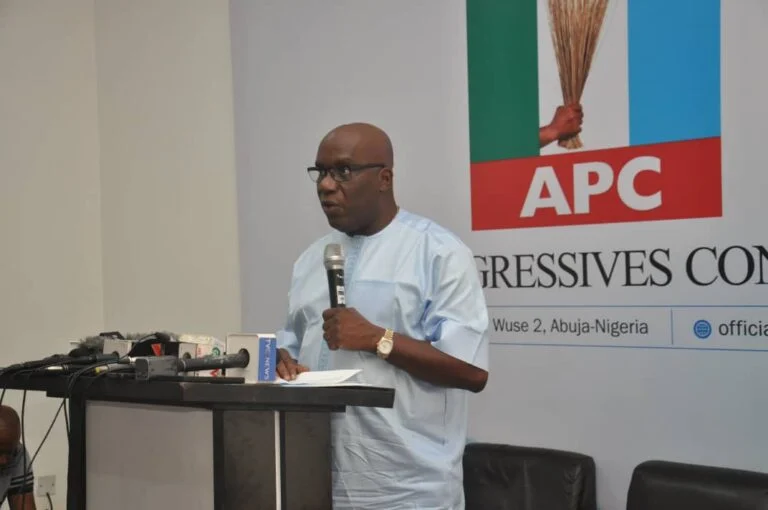Condemnations have trailed the proposed bill seeking to place a death penalty on anyone convicted of hate speech.
The law to establish a National Commission for the Prohibition of Hate Speeches, on Tuesday, passed its first reading on the floor of the Senate.
The Bill is sponsored by Deputy Chief Whip of the Senate, Aliyu Sabi Abdullahi, is coming barely one week after the same chamber initiated moves to regulate the use of social media.
Abdullahi, who was the spokesman of the last Senate, had proposed death by hanging for persons convicted for hate speech. Depending on the degree of the offence, the Bill also provides for life jail, five years of imprisonment, or an option of N10million fine for persons convicted of hate speech.
Reacting, Senior Advocate of Nigeria, Chief Agbakoba Olisa, told the senators to kill the bill, as it was irrelevant and unnecessary.
“First, we have laws in place under our criminal justice system; all we need is enforcing the laws against hate speech by the police. But more important is the fact that the bill is also an establishment bill, which means establishing an agency to enforce the laws prescribed by the bill, placing expenditures we cannot afford. Seeing that we are running a deficit budget of nearly 30 per cent, I urge the Senators to kill it.
“An Establishment Bill sets up a bureaucracy and structures with grave implications for financial resources. But an Executor Bill merely legislates on any matter without strain on resources. So, the new Finance Bill is executory as the FIRS will execute the new VAT tax without any financial implications. Executor’s Bill is an executory bill,” said Olisa.
Another SAN, Chief Mike Ozekhome described it as draconian and should be aborted as a malformed embryo at its second reading before it is delivered as a societal monster.
“The bill is an ill-intentioned, ill-conceived, ill-digested and ill-part dictatorial and absolutist piece of nonsensical legislation waiting to consume all of us. An obnoxious law such as this will further drive underground and into hiding, the opposition and genuine social critics who speak truth to power and criticise serial opaque, anti-people, corrupt and high-handed policies of the government.
“This government has been tested and known to be very allergic to constructive criticisms. It is a government that listens to itself, sets its own examination questions, marks them and award marks to itself. Citizens’ opinion does not matter. That is why we have topmost government officials who shock the conscience of Nigerians and the world by saying, for example, that insecurity in Nigeria is exaggerated (Vice President Yemi Osibanjo, SAN); and that Nigerian roads are not as bad as we “falsely” proclaim (Raji Fashola, Minister of Works and Housings).”
Another Senior Advocate, Ahmed Raji, said the world is moving away from the death penalty.
“I think we should start by probing into what constitutes hate speech under the proposed legislation. Notwithstanding what may constitute hate speech, the world is moving away from the death penalty. And what do we intend to achieve by imposing the death penalty? Will it deter? I think not.”
Former Publicity Secretary, Nigeria Bar Association (NBA), Lagos branch, Emeka Nwadioke, said the imposition of the death penalty was ridiculous in an era when many jurisdictions were jettisoning capital punishment. He also said creating another commission for that purpose amounts to a duplication.
“Restrictions on hate speech must not be abused or deployed to silence journalists and minorities or to suppress criticism of government policies, the opposition or religious groups. The provision for the establishment of a Commission is laughable, given that these offences verging on defamation and hate crimes are already being dealt with by the police. Self-regulation backed by industry codes and sanctions as well as advocacy towards respecting pluralism is the way to go.”
Mr. Lanre Arogundade, journalist, activist and Executive Director, International Press Centre (IPC) dismissed it as annoying and unwarranted.
“It is an absolute waste of public resources to seek to establish a National Commission for hate speech at a time when the social and infrastructural needs of citizens are begging for urgent attention. Roads are collapsing, hospitals are failing, schools are getting dilapidated, but fixing those doesn’t seem to be the priority for this bunch of elected representatives of the people.
“The intention is to criminalise dissent, freedom of expression and press freedom, and we will not buy into such anti-human rights agenda. Those who deserve the death penalty are the looters of the treasury, the long list of which EFCC has. And those who deserve a life sentence are those who misappropriate funds meant for constituency projects. Politicians that lie and fail to fulfil campaign promises are the ones who should be under the hangman’s noose.”
Similarly, Herbert Bata, Senior Lecturer, Department of Communication Arts, University of Uyo, said it is uncalled for.
“What is this bellyaching about hatred? Is hatred not an emotion! Is hate speech not an emotional expression? Can you force one to love when he/she feels the opposite? Is it not our fundamental human right to love and to hate?
“I hate wars. Yes, I hate hypocrisy in government. Yes, I hate poverty! I hate illiteracy, disease, filth, corruption, bad governance. I hate them all. I hate those who encourage evil! I hate those who promote homosexuality and same-sex marriage but say polygamy is barbaric. I hate kidnappings, robbery, embezzlement, murder and thieving spirits. And I hate those who perpetrate those acts. Now, isn’t this hate speech?” the don queried.
“Rights activist and lawyer, Kunle Adegoke said while hate speech is condemnable in all its purport and essence, recommending a death sentence is too grave a punishment.
“In this age when the rest of the world is reducing the number of offences punishable by death, Nigeria will be off the mark to be prescribing death sentence for an offence sufficiently punishable by a less prescription”, Adegoke stated.
Chief Abia Onyike, former Deputy National President, Nigeria Union of Journalists, and Centre Against Brutality and Safety of Journalists in Africa (CABSOJA) said the proposed law is a misdirection of energy and an assault on the free press, citizen journalism and freedom of expression.
Rights activist and Executive Director, CABSOJA, Ugochukwu Ezekiel, said the country already has the Cyber Crimes Act bordering on offences committed through the use of social media. According to him, by prescribing the death penalty, the bill was designed to shut out the media from holding the government accountable to its responsibilities.
Head, Department of Mass Communication, Rehma University Aba, Dr. Uwoma Uche, said the death sentence is akin to using a sledgehammer to kill a fly.
He said setting up a Commission to oversee hate speech amounts to duplicating the functions of the National Broadcasting Commission (NBC) and relevant bodies with the constitutional responsibility of regulating speech in the broadcast media.
A Lagos-based lawyer, Ige Asimudara, faulted the decision of the legislators to entertain the bill.
“These are terrible legislators. How can a legislator propose death penalty for hate speech. This is the beginning of the death of press freedom. It is intended to gag free speech. Who defines hate speech?”
Former chairman of the Nigerian Bar Association (NBA), Ikeja branch, Dave Ajetumibi, said the penalty was too harsh, but supported any law that checks the reckless use of social media.

 BIG STORY2 days ago
BIG STORY2 days ago
 BIG STORY2 days ago
BIG STORY2 days ago
 BIG STORY1 day ago
BIG STORY1 day ago
 BIG STORY2 days ago
BIG STORY2 days ago
 BIG STORY4 days ago
BIG STORY4 days ago
 BIG STORY23 hours ago
BIG STORY23 hours ago
 BIG STORY7 hours ago
BIG STORY7 hours ago
 BIG STORY4 days ago
BIG STORY4 days ago
































